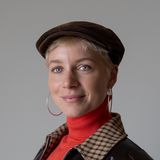In Designing Cities for All (DCFA) we dive into the matter of (re)designing inclusive cities. Next to inviting many designers, scientists, experts, educational institutions, and other involved partners to participate- we invited a total of six Fellows to curate part of the programme. After our 2021 Fellows Lyongo Juliana, Dark Matter Labs, and Galit Ariel, and OneWorld in the first months of 2022, we are happy to welcome Daphina Misiedjan as our next Fellow! In her DCFA Fellowship, Daphina, who is an expert on environmental justice and human rights, will take us on her mission to (re)think the way people and the environment are related. Together we’ll explore how different social and environmental circumstances can create inequalities on a local, regional and international level.
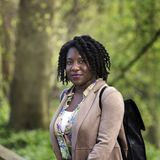
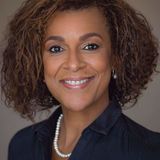
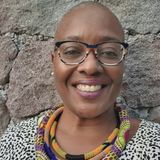
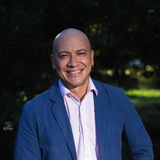
About the Fellow
Dr. Daphina Misiedjan is an assistant-professor in human rights and the environment at International Institute of Social Studies (ISS), The Hague and 2020/2021 Fellow at The Netherlands Institute for Advanced Study in the Humanities and Social Sciences (NIAS). In addition, she is an expert within the UN Harmony with Nature program. She specializes in issues concerning human rights and environmental justice, specifically concerning Environmental Justice within the Kingdom of the Netherlands, Rights of Nature and Environmental Justice form local city and neighborhood perspectives.
About the speakers
Jorien Wuite is a member of the Dutch House of Representatives for the D66 party. She was a strategic advisor in the St Martin government, Secretary-General of two ministries and Minister of Education, Culture, Youth and Sports Issues at St Martin. As a member of the House, she focusses on the Interior & Kingdom Relations and Arts & Culture issues.
Listen to Jorien Wuite’s podcast interview with journalist John Samson, talking about her experience of witnessing hurricane Irma in St. Maarten and her view on tackling climate change in the Dutch Caribbean (only available in Dutch).
Lysanne Charles is a PhD candidate in Political Anthropology focusing on Governance, Climate Change, Policy Development and Community Engagement with the Island(er)s at the Helm Project. Born on the island of Saba and raised on Saba, Curacao and St. Maarten, Lysanne considers herself a committed Caribbeanist, Feminist/Womanist, Activist/Artist and Researcher. In the past Lysanne worked as an educator at several high schools on Saba and St. Maarten, a civil servant for the Government of Sint Maarten at the Departments of Social Development and Sport in the areas of policy development and implementation and the director of a small NGO on Saba which helped bridge the gap between vulnerable persons and the labor market. Educated in the fields of Political Science and Mass Communications at the University of North Carolina at Pembroke and Sociology and Cultural Anthropology at the University of Amsterdam Graduate School for Social Sciences she is particularly interested in citizen participation methodologies and community building mechanisms. She often invokes the words of Audre Lorde who wrote “There is no thing as a single-issue struggle because we do not live single-issue lives,” saying that her reality as a multifaceted, complex individual informs her pursuit of liberation on many fronts and not just one.
Tadzio Bervoets was born on St. Martin to a local St. Maarten mother and a Belgian father. He attended first the Sister Borgia School and then graduated from the St. Dominic High School. He earned a Bachelor’s degree in International Relations and NGO Management from the University of South Florida and a Master’s degree from the Vrije Universiteit Amsterdam University in environmental resource management with a specialty in coral reef ecosystems.
Tadzio began his professional career in Bermuda advising the Government on Coral Reef Conservation as a project lead on the Coral Reef Ecosystem Valuation Project of the British Government for Bermuda. He then moved to Tanzania where he developed incentives for local fishermen to become marine park rangers as well as conducted socio-ecological research on the management of the Chumbe Island Coral Reef Reserve. He returned to the Caribbean to serve as the marine park manager in St. Eustatius. Soon after, he began his position as the Director for the St Maarten Nature Foundation where he was instrumental in establishing the Man of War Shoal Marine Protected Area, St. Maarten’s first National Park. Tadzio is now the Director of the Dutch Caribbean Nature Alliance, a Network Organization that supports nature conservation on all six islands of the Dutch Caribbean.
Tadzio was also on the Executive Committee of the National Development Plan responsible for Environment, on the St. Maarten Millennium Development Goal Action Group and former Acting Chair of the Dutch Caribbean Nature Alliance. He was previously focal point for Sint Maarten for the CITES treaty, SPAW protocols of the Cartagena Convention and the Inter-American Sea Turtle Convention. He is also board secretary of the Animal Defenders Foundation for Sint Maarten. Tadzio is the first Dutch Caribbean Member of the Explorers Club and an awardee of the McFarlane Award for Conservation Leadership in the Insular Caribbean.


The Dutch Caribbean Nature Alliance (DCNA) expressed its concern to the Dutch Government about the lack of attention to the impacts of climate change in the Caribbean Netherlands. The Dutch Caribbean islands expect to face very critical crises in the near future as a result of hurricanes, coral bleaching, sargassum invasions and drought>>.

Verwoestende orkanen en erosie van koraal: de Caribische eilanden hebben al jaren veel last van klimaatverandering. Toch geldt het Klimaatakkoord van Parijs niet voor dat deel van het Koninkrijk>>.

“De verwachting is dat klimaatverandering op de eilanden een existentiële crisis zal zijn. Er moet snel meer aandacht komen voor de gevolgen van klimaatverandering op de Caribisch-Nederlandse eilanden.” Dat stelt Tadzio Bervoets, directeur van de Dutch Caribbean Nature Alliance (DCNA)>>.

Research on environmental injustice began in the late 1970s, after residents of a Black middle-class neighborhood in Houston, Texas, found out that the state was going to permit the siting of a solid-waste facility in their community. One question loomed large in the residents’ minds: Why was it being placed here and not in the white neighborhoods nearby?

Veel mensen in Nederland maken zich zorgen om de klimaatcrisis. Maar hoe zit het met onze Caribische eilanden? Houden mensen daar zich bezig met klimaatverandering? En wat merken ze ervan? John Samson neemt jou mee op reis>>.

